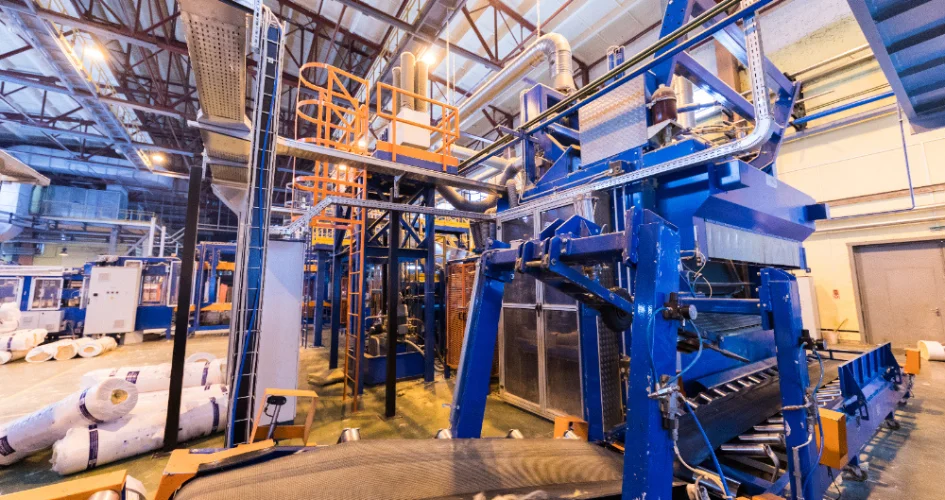In the fast-evolving world of industrial and Original Equipment Manufacturer (OEM) applications, precision, reliability, and efficiency are critical factors. Solenoid pumps, a type of positive displacement pump, have emerged as a vital component in numerous industrial processes. Their unique combination of operational simplicity, adaptability, and performance has made them indispensable in various sectors, including chemical processing, food and beverage, medical devices, and more.
Understanding Solenoid Pumps
A solenoid pump operates on the principle of electromagnetic force. The core component of a solenoid pump is the solenoid—a coil of wire that creates a magnetic field when electric current passes through it. This magnetic field drives a piston or diaphragm, creating a pumping action. By leveraging this mechanism, solenoid pumps achieve precise fluid transfer, making them ideal for applications requiring accurate dosing or metering.
Key Features of Solenoid Pumps
– Precision and Accuracy: Solenoid pumps are renowned for their ability to deliver exact fluid volumes. They operate in a linear and predictable manner, ensuring accurate dosing and metering. This is critical for industries such as pharmaceuticals and chemical processing, where precision is paramount.
– Compact Design: Solenoid pumps are typically compact and lightweight. This design advantage allows OEMs to integrate them seamlessly into equipment without requiring excessive space.
– Low Maintenance: The simplicity of solenoid pumps ensures minimal wear and tear. Unlike traditional pumps, solenoid pumps have fewer moving parts, reducing the need for frequent maintenance and replacement.
– Energy Efficiency: These pumps consume energy only when operating, making them a cost-effective solution for industrial applications. Their intermittent operation reduces energy wastage.
– Chemical Resistance: Solenoid pumps are often constructed with materials resistant to aggressive chemicals, ensuring durability and compatibility in challenging environments.
– Versatility: These pumps can handle a wide range of fluids, including viscous liquids, corrosive chemicals, and gases, making them suitable for diverse applications.
Advantages of Solenoid Pumps in OEM Applications
– Customization for Specific Needs: Solenoid pumps can be tailored to meet the specific requirements of OEM equipment. From flow rate adjustments to material selection, these pumps offer flexibility to align with unique application needs.
– Integration with Control Systems: Solenoid pumps can easily integrate with automated systems, enabling precise control over fluid dispensing. This compatibility is crucial in modern manufacturing setups.
– Cost-Effective Solution: Their low energy consumption, minimal maintenance needs, and long operational life translate to significant cost savings for OEMs.
– Enhanced Product Performance: By incorporating solenoid pumps, OEMs can enhance the reliability and efficiency of their products, leading to better end-user satisfaction.
Applications in Industrial Settings
– Chemical Processing: Solenoid pumps are ideal for handling corrosive and hazardous chemicals. Their ability to dispense precise amounts makes them indispensable in industries such as water treatment, where chemical dosing is a critical process.
– Food and Beverage Industry: In this industry, maintaining hygiene and precision is critical. Solenoid pumps, made with food-grade materials, are used for dosing flavors, additives, and cleaning agents with high accuracy.
– Pharmaceuticals and Medical Devices: Solenoid pumps ensure precision in drug delivery systems, dialysis machines, and laboratory equipment. Their reliability underpins the safe and accurate dispensing of fluids.
– Water Treatment: These pumps play a key role in water purification systems by dosing chlorine, acids, or other water treatment chemicals.
– Printing and Packaging: Solenoid pumps support ink and adhesive dispensing systems, ensuring uniform application in high-speed industrial processes.
– HVAC Systems: In heating, ventilation, and air conditioning systems, solenoid pumps aid in the controlled transfer of refrigerants and other fluids, enhancing operational efficiency.
Design Innovations Enhancing Solenoid Pump Applications
Recent advancements have significantly broadened the scope of solenoid pumps in industrial and OEM applications. Some of these innovations include:
– Variable Flow Rates: Modern solenoid pumps feature adjustable stroke lengths and frequencies, enabling operators to fine-tune flow rates for specific processes.
– Advanced Materials: The use of advanced plastics, ceramics, and alloys has improved the chemical and thermal resistance of solenoid pumps, making them suitable for harsh environments.
– Smart Integration: Many solenoid pumps now come equipped with smart sensors and IoT capabilities, providing real-time monitoring and diagnostics to enhance operational reliability.
– Noise Reduction Technology: Innovations in pump design have minimized noise levels, a critical factor for applications requiring quiet operation, such as medical devices and laboratory equipment.
– Energy-Saving Mechanisms: Energy-efficient models leverage advanced solenoid technology to reduce power consumption further, aligning with sustainability goals.
Why Choose Solenoid Pumps Over Other Pump Types?
– Precision Advantage: Unlike centrifugal or peristaltic pumps, solenoid pumps provide unmatched accuracy in fluid transfer, making them the preferred choice for metering and dosing applications.
– Ease of Control: The ability to control solenoid pumps via electrical signals offers superior flexibility compared to other pumps that may require complex mechanical adjustments.
– Compactness and Portability: Solenoid pumps are generally smaller and lighter than gear or diaphragm pumps, making them easier to integrate into compact systems.
– Durability in Harsh Conditions: With their chemical-resistant materials and simple design, solenoid pumps outperform other pump types in handling aggressive fluids or high-temperature environments.
How to Choose the Right Solenoid Pump
Selecting the right solenoid pump requires careful consideration of several factors:
– Fluid Characteristics: Determine the chemical compatibility of the pump with the fluid to be transferred. Consider viscosity, temperature, and corrosiveness.
– Flow Rate and Pressure Requirements: Choose a pump that matches your specific flow and pressure needs. Over-sizing or under-sizing can lead to inefficiency or damage.
– Material Selection: Ensure the pump materials can withstand the operating environment, especially in aggressive chemical applications.
– Control Features: For applications requiring automation, look for solenoid pumps with programmable controllers or compatibility with your control systems.
– Maintenance and Durability: Opt for pumps with proven reliability and low maintenance requirements to minimize downtime.
Future Trends in Solenoid Pump Technology
The future of solenoid pumps looks promising, with ongoing research and development driving innovations. Key trends include:
– Integration with AI and IoT: Advanced solenoid pumps with built-in sensors will offer real-time performance monitoring and predictive maintenance, reducing operational costs.
– Sustainable Designs: Manufacturers are focusing on creating energy-efficient and eco-friendly solenoid pumps to meet global sustainability standards.
– Miniaturization for Microfluidics: In medical and laboratory applications, the miniaturization of solenoid pumps will enable more precise control in microfluidic systems.
– Enhanced Customization: Future solenoid pumps will likely offer greater customization options, catering to niche industrial needs.
Conclusion
Solenoid pumps have become essential in OEM and industrial applications due to their precision, reliability, and adaptability. Their ability to handle diverse fluids, coupled with ease of integration into automated systems, makes them a versatile choice across industries. With continued innovation and the push for energy efficiency, solenoid pumps are set to play an even more critical role in shaping the future of industrial processes. Whether you are an OEM looking to enhance your product line or an industrial operator seeking reliable fluid transfer solutions, solenoid pumps are a worthwhile investment. Their unparalleled accuracy, minimal maintenance, and adaptability to a range of applications ensure they remain a cornerstone in industrial and OEM landscapes.


Videos